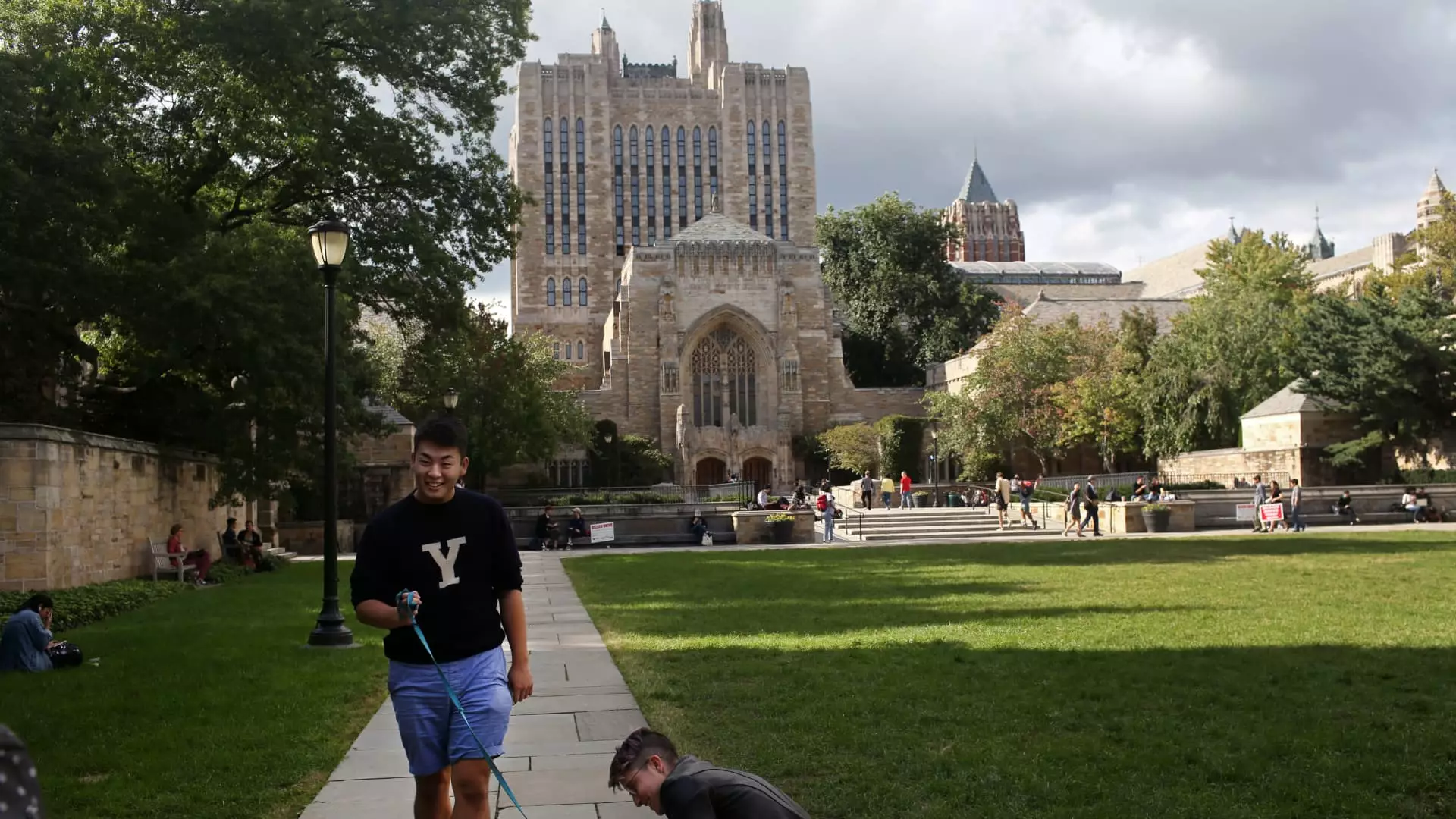The recent tax overhaul, championed under the guise of prudent fiscal management, is revealing its true nature as a Trojan horse that threatens to undermine the very foundation of American higher education. The so-called “one big beautiful” package promises to fund crucial initiatives but, upon closer inspection, exposes a perilous short-sightedness. The newly introduced multi-tiered endowment tax is essentially a misguided attempt to squeeze more revenue from elite colleges, but it does so at a profound cost to the long-term stability of these institutions—and, by extension, the students they serve.
Far from being a necessary measure to address fiscal deficits, this tax appears to be an ideological overreach that neglects the delicate fiscal ecosystem of higher education. Major research universities, the engines of innovation and economic growth, are now being subjected to punitive tax rates that threaten their capacity to invest, innovate, and grow. The increased taxes may bring in an estimated $761 million over a decade, but at what expense? Critics warn that revenue shortfalls, staffing cuts, and tuition hikes are inevitable fallout—striking directly at the heart of accessible, quality education.
This policy fails to recognize the vital role that well-funded endowments play in maintaining financial stability and ensuring educational excellence. Instead of incentivizing responsible wealth management and strategic investment, it imposes a blunt, punitive measure on those who have historically contributed significantly to research, scholarship, and societal advancement. The idea of taxing large endowments as a means of raising funds is fundamentally flawed: it incentivizes universities to divert resources from their core academic missions and into financial maneuvers aimed solely at minimizing tax liabilities—an ironic twist in the pursuit of educational progress.
The Real-World Impact on Students and Academic Quality
What makes this tax particularly troubling is its potential ripple effect on students and faculty alike. University administrators are already bracing for the financial strain, with Yale warning of an estimated $280 million in taxes in the first year alone. The immediate fiscal pressure has led to hiring freezes, tuition increases, and delays in campus development projects. These austerity measures threaten to diminish the quality of education, limit research opportunities, and turn college into an increasingly exclusive privilege for the wealthy.
Increasing tuition is a straightforward response to revenue shortfalls, and it spells disaster for those from lower-income backgrounds who rely heavily on financial aid to attend college. When colleges’ aid budgets are squeezed or redirected to cover tax liabilities, the result is an erosion of the social mobility that higher education has historically provided. As experts like Mark Kantrowitz have pointed out, this shift risks making financial aid less generous or less accessible for students who need it most—undermining the core principle of higher education as a ladder out of poverty.
Moreover, the broader implications extend beyond individual institutions. The competitive landscape of college admissions could shift, favoring wealthier applicants and further entrenching educational inequality. The promise of higher education as an equalizer between socioeconomic classes diminishes when institutions face financial distress, compelling them to prioritize revenue generation over educational mission.
The Political and Ethical Flaws of Targeting Endowments
A critical flaw of this policy lies in its misguided premise: that large endowments are an untapped reservoir for government revenue, when in reality, they serve as essential buffers against economic downturns, emergencies, and fluctuating funding streams. By penalizing wealthier universities through higher taxes, the government risks discouraging prudent financial management and charitable giving, undermining a vital aspect of higher education financing.
From a center-left perspective, this approach epitomizes a flawed redistribution strategy that fails to recognize the broader societal role of universities. Instead of fostering collaboration between public and private sectors to expand access and affordability, it penalizes those who have successfully accumulated resources through innovation and fiscal discipline. It reflects a punitive attitude that criminalizes success rather than incentivizes societal contributions.
Furthermore, tying the tax to endowment size—while exempting smaller schools—raises questions about fairness and unintended consequences. Larger institutions, often engaged in groundbreaking research and public service, will shoulder disproportionate burdens. Such targeted taxation risks stifling the very institutions that drive societal progress through research, innovation, and workforce development.
This tax policy, cloaked in the language of fairness and fiscal responsibility, ultimately undermines the very principles it claims to uphold. It stands as a testament to a shortsighted political calculus that prioritizes immediate revenue at the expense of long-term educational excellence and societal progress. By penalizing the institutions that fuel innovation and opportunity, this measure threatens to deepen the divide between the privileged and the marginalized, weakening the foundation of an equitable society.
The American higher education system, historically a beacon of opportunity and discovery, cannot afford to be sacrificed on the altar of fiscal expediency. Instead of punitive taxes and short-term fixes, policymakers should focus on creating sustainable funding models that respect the vital role of research universities. Only then can we ensure that education remains a transformative force for all, rather than a privilege reserved for the few who can navigate a increasingly hostile financial landscape.

